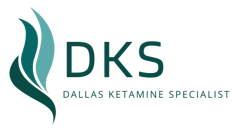Seasonal Affective Disorder (SAD), is a type of depression that follows the seasons. Winter depression is the most common form of SAD. According to American Family Physicians, around 46% people could have winter depression. It typically begins in the late fall or early winter, but it subsides by the summer.
Although symptoms can vary from person to person, these are the most common winter depression symptoms.
- Concentration is difficult
- Fatigue
- Oversleeping is a common problem
- Concentration is difficult
- Energy level decreases
- Appetite changes, especially with sweet or starchy foods
- Weight loss
- Sensitivity to rejection from social groups has increased
- There is no desire to socialize.
SAD sufferers often feel a loss in interest and pleasure in activities they once enjoyed. They also experience feelings like guilt, hopelessness, or helplessness. Some sufferers may experience stomachaches or headaches.
SAD can be treated with sunlight . As the summer heat begins to whine, symptoms begin to subside. We often wonder if this is true.
What to do if the seasonal depression persists in the summer? Ketamine Therapy may be a solution!
There are many types of depression. Some are caused by life events, others by brain chemical changes. It’s important to be aware of your body and mind. While it’s common to feel blue from time to time, you might be suffering from clinical depression even after the sun sets.
These are the most common types of clinical depressions.
- Major Depressive Disorder occurs when you feel depressed on most days of your week. You may feel tired, sluggish or worthless. It is possible to lose interest in certain activities you once enjoyed. It can be difficult to concentrate or make decisions. Suicide thoughts may be a possibility.
- Persistent Depression Disorder is a condition that causes persistent depression for more than two years and has symptoms similar to major depressive disorder.
- Manic depression or bipolar disorder: Extreme mood episodes can occur when someone is experiencing this type of depression. They may experience extreme mood episodes, such as feeling “high” with energy and “low” depression. If you are in a “low”, symptoms of serious depression can occur. Manic depression sufferers will experience extreme euphoria, hyperactivity and delusions. This is a dangerous condition that can cause people to not eat or sleep during manic episodes.
Proper treatment for depression can save your life.
Some types of depression can be treated by changing your lifestyle or talking to a therapist. You may also try IV Ketamine Infusion Treatments, which is a new, advanced medicine that only requires a few treatments.
IV Ketamine Infusions help treat depression.
Ketamine first developed in 1962 as a dissociative painkiller and was used initially for children’s surgery during the Vietnam War.
It has also been used in the treatment of chronic and intractable pain, treatment resistant depression, anxiety disorders, as adjunct therapy for patients suffering from post-traumatic stress disorder (PTSD) and chemical dependency disorders.
It is well-known that Ketamine can improve a variety of psychiatric disorders quickly, such as the following:
- Major depression
- Suicidal thoughts
- Obsessive-compulsive disorders
- Generalized anxiety
- Bipolar disorder
- Posttraumatic stress disorder
You can give it intravenously, intramuscularly or sublingually. It has recently been approved by the FDA for use in the office. Recent research has shown that ketoamine is a promising adjunctive treatment for psychotherapy.
Ketamine Therapy Treatment
Ketamine can reduce the likelihood of suicide (or other life-threatening thoughts and acts) and alleviate severe depression symptoms. It can also be helpful for people who need help with anxiety and depression.
Ketamine therapy may be beneficial for multiple conditions. Patients can suffer from many types of chronic pain, anxiety, depression, and trauma. Ketamine therapy may be able to help them all. Other intractable conditions that are not currently being treated with safe and effective ketamine therapy can also be helped by ketamine therapy.
Sometimes, a combination of antidepressants and talk therapy is not enough. We can help you as your Dallas pain management physician. This will allow you to feel better in weeks or even months. While others may need to take several types of medication to get relief, our treatment plan is like Ketamine Therapy.
